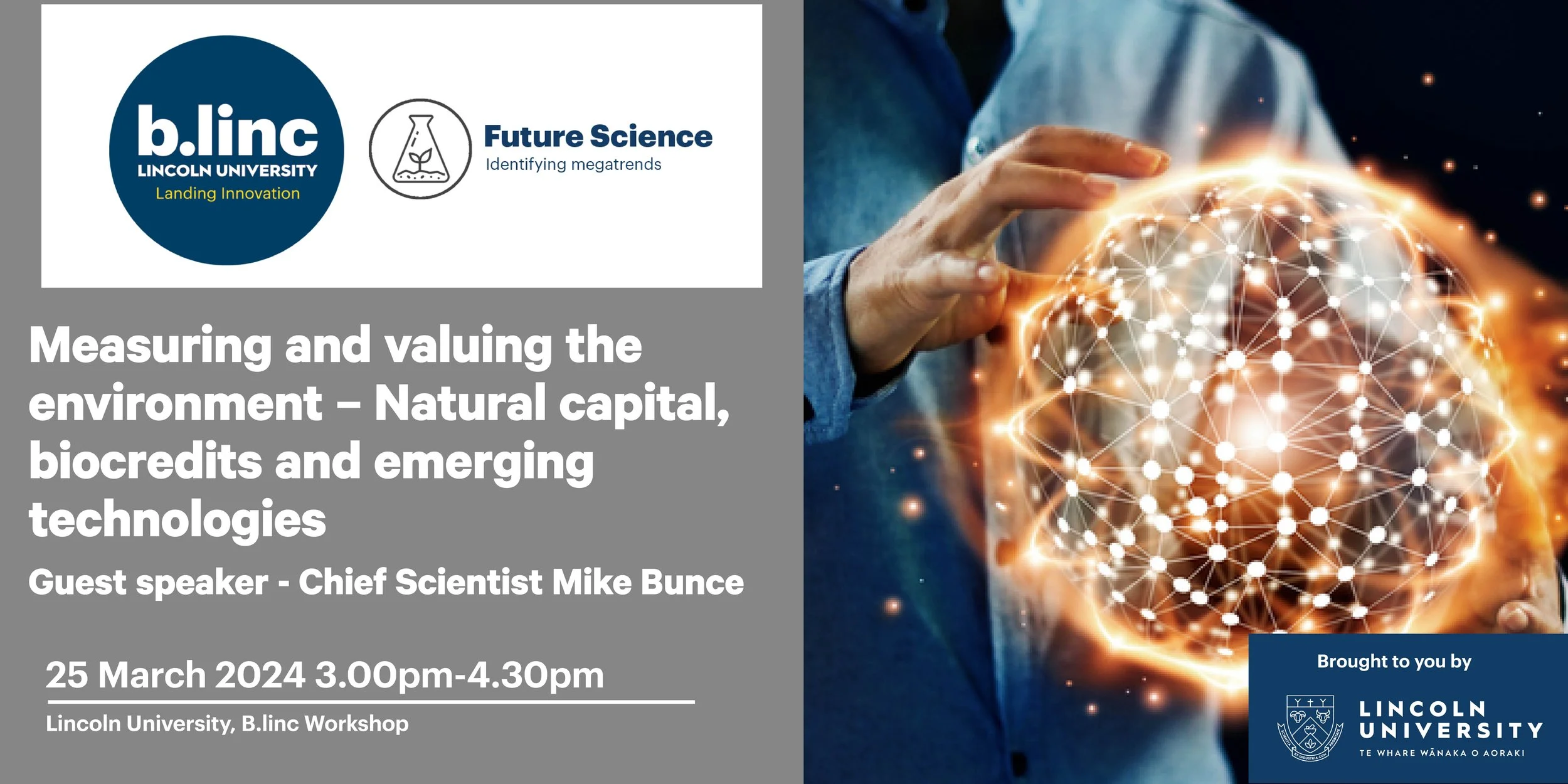Join us for our first event in a new series for 2024. Our Future Science series is an opportunity to engage with Chief Science Advisors. Identifying and mapping megatrends for future scientific research and securing pathways for future relevant outputs. The Chief Science Advisor is a conduit for emerging opportunities and risks from the scientific and research communities to the administration and government. They are also the connection point to bridge research communities and government.
We are joined by Professor Mike Bunce, Chief Science Advisor for Department of Conservation for an afternoon seminar addressing the key issues Professor Bunce has highlighted as being a focus for New Zealand.
Environments across the globe are under pressure from climate change, pollution, biodiversity loss, invasive species and land use change. We know this because scientific data underpins these observations into state and trend. As we embrace new technologies such as satellite data, environmental DNA, GE and video/acoustics, how do we deal with the volumes of data and understand the consequence of decision-making. Increasingly AI tools and models are needed to help navigate this complexity. Some futures-thinking in this area was published in 2023 in the form of the Long-Term Insights Briefing (LTIB) by DOC/LINZ and MFE.
Join us for this presentation and an opportunity for Q&A, as we hear from Professor Bunce on how to navigate the big and small rocks that sit in the path towards sustainable environmental futures that strikes a balance we can live with, both now and in the future.
Monday 25th March
3.00pm - 4.30pm
B.linc Workshop
We hope to see you there!
Timings
3:00pm: Guests arrive for afternoon tea and networking
3:15pm: Presentation from Chief Science Advisor detailing megatrends addressed by the research strategy
4:15pm: Speaking finishes, networking continues
4:30pm: Event finishes
About Our Speakers
Professor Mike Bunce
Chief Science Advisor | Department of Conservation (DOC) – Te Papa Atawhai
Mike grew up in Ōtautahi and studied genetics at Lincoln University, followed by a PhD in virology in Australia. He then took his DNA skills and decided to apply them within the field of ancient and environmental DNA, where he then spent the next 20 years (at Universities in Oxford, Canada and Australia) extracting DNA from a wide variety of biological material – from fossils to sea water. Mike has published over 220 papers. In 2019, he left academia to take up the position of Chief Scientist at the EPA but in 2020 was seconded into Aotearoa’s COVID-19 response, where he wrote science advice and policy on the pandemic for the PMCSA, MoH and ESR. In November 2023, Mike was appointed as Chief Science Advisor at DOC. He lives in Wellington with his wife, two kids and golden retriever.
Click here to see more events


